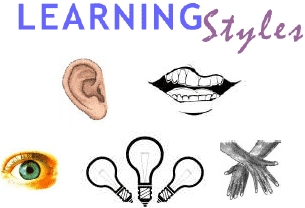
People with intellectual / developmental disabilities experience slower development in terms of learning, reasoning, and memory. They often master basic and social skills more slowly, and may require particular supports and resources to participate more fully in literacy instruction.
Like all learners, these adults may learn things (take in information) better by hearing them spoken, seeing them, or repeating them aloud. When working with these learners, it is crucial to consider their different learning styles. Knowing how individuals learn best is valuable information for a literacy tutor, who then can teach in favour of those styles.

You can learn a lot about a learner’s preferred learning styles by watching and listening. Your experience with the learner and discussions with the learner can be revealing. You can experiment by teaching a concept focusing on two different styles to see if the learner performs better through one method compared to the other. Formal tests or checklists that are meant to determine the dominant learning styles may be less welcome by these learners, who may have had negative schooling experiences. As such, the results may be less revealing than hoped. Take sufficient time and observe carefully to identify the learners’ strengths.